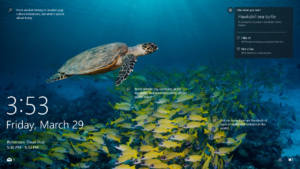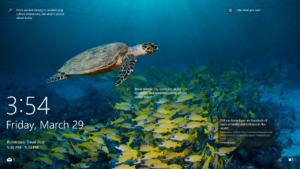In today’s world, one of the most valuable assets for a company is data. The more data that a company has, the more potential it has to appeal to consumers and earn large revenues. Google and Facebook learned this quickly and now have more data on individuals all over the world than any other company. As a result, they are able to predict consumer behavior and capitalize on it through ad personalization, for example.
Microsoft is currently trying to catch up to Google and Facebook in various ways. One of the means through which Google has amassed data on users is by having them link their gmail account to their search history. Similarly, Microsoft has linked its online office suite, OneDrive, to the user’s offline programs in order to collect consumer behavior data. The company is desperately trying to entice users to use the full range of products, with the goal of collecting the most well-rounded consumer data.
One such initiative has been implemented through the Windows start page, where some type of landscape picture is shown. Due to several buttons on the screen, the user can interact with that picture. There are two aspects of this start page that are very strategic. The first is that users can signal whether or not they like the image that they are shown. With additional consumer behavior data from their historic database, it would not be too hard to be able to determine consumer personality and preferences simply from their answers to the question whether they like the image or not.
The second is the use of questions and fun facts to draw users to Microsoft’s search engine, Bing. There are several buttons on the screen that enlarge to display call to actions (CTAs). These buttons are used to entice users to interact with Microsoft products. Moreover, they serve as delightful little surprises to delight users at the beginning of every computer session.
In the end, this dynamic start page is used for two main reasons: (1) to gain more consumer behavior data and (2) to encourage users to adopt Microsoft products. Did this new Microsoft feature convert you to start using Bing?


Nice article !
Thanks 🙂